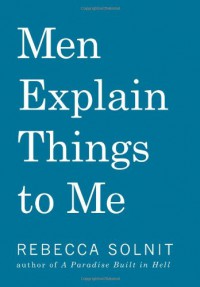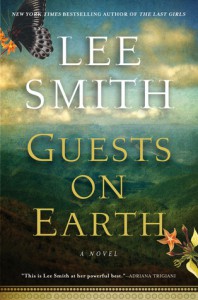Currently reading
Not what I expected

I've been reading up on Richard III lately and came across various recommendations for Daughter of Time online. It sounded like it had everything that a big ol' history nerd/Anglophile like me would want: British detective, historical intrigue, mentions of pubs. I did find all of those elements in the book, but ultimately it was a disappointing read.
Let's start with the premise: Detective Grant is laid up in hospital (she said, Britishly) and a friend brings him a stack of portraits to entertain himself with because he likes faces and hates books. After staring into the velvety eyes of Richard III for awhile, he begins to suspect that the most villainous king in English history might not be a villain after all. We are supposed to take this as a good and reasonable thing because detectives "know faces."
Sorry, but I really don't like the idea of cops homing in on criminals because of how they look. As someone who suffers from RBF, this whole notion creeps me out. Furthermore, we're not even talking about photographs. Grant is looking at a copy of a painting (and let me interject here that I don't think the face in this portrait is particularly nice), and the original version was presumably painted during Richard's lifetime and intended to flatter. COME ON.
The other major problems with this book are that the characters aren't very likable (Grant especially is prone to judgmental and curmudgeonly musings about his nurses and visitors), and there is absolutely no action. Grant isn't able to sit up in bed until more than halfway through the book and most of the so-called action consists of him reading history books (some of them invented for the novel, some real) and talking about Richard with whoever has the misfortune of wandering into his hospital room.
In the end, I didn't find the arguments for Richard's innocence to be at all persuasive. Obviously he had a motive to kill his nephews even after they were declared illegitimate. Any number of political enemies could have rallied around them at some point in the future, had they been left alive. And Henry Tudor wouldn't have been stupid enough to declare Edward IV's children legitimate unless he'd been absolutely certain that the princes were already good and dead.
Richard probably wasn't as horrible as Shakespeare made him out to be, but that doesn't mean he didn't commit a political murder or two in his day just like every other English king had before him.
Secrets suck

So sometimes I'm like, "Self, I'd like to read a Maeve Binchy book but I don't want it to be set in Ireland."
"Not gonna happen, suckah!" I yell back at myself.
Or at least I did until I discovered this (Australian) author. The Husband's Secret is a bit meandering, and the secret isn't very suspenseful, but it brought back endless flashbacks to the summer I visited my grandmother and read her Maeve Binchy shelf. Ah, memories.
Painfully boring

The main takeaway from this book: not all sociopaths are criminals, but they are all assholes.
This book should be fascinating, but instead it is incredibly dull and tedious to read. The author seems much more impressed with herself than she should be--normal if she is in fact a sociopath--but none of the autobiographical stories she's so obsessed with were interesting to read about.
Also, there's something about this book as a whole that rings false. I don't know if it's because she changed details to protect herself/others, or typical sociopathic exaggeration, or if she's actually lying about being a sociopath. Whatever it is, it makes the book even more unpleasant to read.
Should have re-read the Little House books instead

Oh man, I was let down by this book. I love Laura Ingalls Wilder so much that, by extension, I love all people who love her. And some of them are nuts.
Based on the cover (I know, I know) and the plot description on the book flap I thought this would be a witty novel about a Vietnamese-American woman's love for Little House. Witty it ain't, although I did appreciate the reference to Michael Landon's perpetually bared chest and the infamous Sylvia episodes of the TV show.
The best parts of the book should have been Lee's interactions with her family, but they never led anywhere and quickly grew repetitive. While this was not a memoir, the structure and total lack of tension in the narrative made it read like one--events just unfold and the narrator bops from one place to the next without doing anything particularly interesting.
The fake literary mystery that the narrator is trying to solve was pretty cheesy, especially given the lack of context in the author's note about what's real and what's not. She says this is a "what if" story but doesn't tell the reader exactly which bits she made up, and also stops short of fictionalizing Rose Wilder Lane's life in a way that would resolve the plot. In the end I was left feeling this book failed as a novel because the plot never went anywhere unexpected and failed as a book about the Wilder women because parts of it were fake.
I'm going to go re-read my Little House boxed set now.
Half of a good book

This book went on super sale when Rappaport's new book about the Romanov daughters came out. Zam! I love cheap Kindle books.
I read the biography of the sisters first and was disappointed in how it petered out at the end--the author said in her preface that she had already written a book about the Ekaterinburg days and didn't want to go there again.
So I read the book about Ekaterinburg. It's got some interesting tidbits about the sisters that weren't included in their biography--namely the story about Maria getting involved with one of their jailers, which resulted in a rift in the family and a clampdown on their privileges. As I said in my review of The Romanov Sisters, I can't understand how that anecdote got left out of the biography (especially when Rappaport had nearly nothing to say about Maria otherwise).
The structure of the book is fairly clever--Rappaport starts each chapter with a description of the Romanovs in captivity and then jumps into other details: biographical information about everyone in the family, details about how the Bolsheviks were planning the Romanovs' deaths, political maneuverings in Russia and abroad. Some of these details are more interesting than others so parts of the book drag, but overall it's a vast improvement over the utter tedium of the last third of The Romanov Sisters.
One final nitpick: there are no citations here. Rappaport addresses this in her author's note, justifying it as a way to keep the narrative flowing. I really dislike it when nonfiction books present a bunch of subjective statements without attributing them to anyone, so not knowing which story came from which source really bothered me.
Some combination of this and The Romanov Sisters would create a pretty interesting read. By themselves the books fall a bit flat.
All about The Romanov Sisters...and parents and brother.

I've read several books about the Romanovs over the years. This one is purportedly a biography of OTMA (Olga, Tatiana, Maria, and Anastasia), daughters of the last tsar of Russia, but it ended up dealing more with the family as a whole. The narrative is straightforward and there are copious quotes from letters and diaries, but the sisters never felt fully fleshed out. It seemed as though the author was pulling her punches at times, and sometimes just failing to connect the dots. For example, she presents quotes from people who saw Anastasia as the family clown, delightfully charming, and those from others who thought she was obnoxious and ill behaved. There's very little connective tissue to tie the quotes together and bring Anastasia's personality to life.
In the prologue, the author says she's already written a book about the Romanovs' deaths in Siberia and doesn't want to cover that ground again, so the execution is glossed over. I think that's understandable, but it seemed like she was really disinterested in everything the family went through once they were in exile. I've read other books that talked about Maria being considered boy crazy by the other grand duchesses and getting into trouble with her family for flirting with the guards when they were in Siberia. There's even a story that one of the guards brought her a birthday cake and Maria was later caught with him in a "compromising position." There is no word of this in the book--does the author have reason to believe it didn't happen? Why wouldn't you mention that, if that were the case? I think the best biographies put things into context for the reader. Given that the girls were living through turbulent times and factions on every side were prone to spreading rumors to support their own agendas, I think she does the reader a disservice by not presenting some of what has been said over the years and dismantling the falsehoods. Instead the last third of the book consists of letter after letter in which the grand duchesses write to their friends about how bored they are. Unfortunately, it's also quite boring to read.
I would recommend this as a good introduction to the Romanov family, but there's not much here to interest anyone who's familiar with their story. And readers who are hoping to have the grand duchesses come alive on the page will likely be disappointed.
Love the title essay

There are a couple of really nice essays in this book. It's too short, though, and strangely repetitive.
Offensively bad

I just can't with this book.
Pros:
**crickets chirping**
Cons:
1. Typos galore
2. A diamond heiress named Maylynne? I'm sure there are tons of perfectly nice people with that name, but come on. A DIAMOND HEIRESS named MAYLYNNE?!?!
3. There is a strange, casual misogyny throughout the book that the characters just accept and treat as though it's okay. The headmaster of the prep school is described as "handsy." These are supposed to be the children of the most powerful people in the country and yet their headmaster is allowed to randomly grope them at will? Presumably he's being protected by the a-holes who run the secret society, but why? Why wouldn't they get rid of him and replace him with someone who's capable of acting like a minimally responsible human being if only to avoid scandal?
Later, the "heroine"
(show spoiler)
After witnessing this, she casually continues her search for a bathroom and pauses to read a notebook listing the history of the secret society she's just joined, completely oblivious to the horror of what she's just seen. In fact none of it seems to sink in until later, when she worries that the same thing might have happened to her, and even then she doesn't actually do anything about it.
No. Just no.
4. The characters are generic cardboard cutouts who behave in unrealistic or stupid ways just to propel the plot forward. The main character especially is a blank: all we know about her is that she has a smart mouth, plays lacrosse, jogs a lot, and once wore jorts to a dance.
5. Don't get me started on the lame romance or the enormous middle section taken up with Dresses! Parties! Glamour!
Poor Anastasia

I've never been an Anna Anderson supporter. Even before the DNA evidence came out, pictures of her looked completely unlike Anastasia. How could anyone have believed her stories?
This book doesn't provide me with the psychological understanding of Anderson's supporters that I'd been hoping for, but it does debunk a number of the myths that have grown up around the case and ably proves that Anderson was a Polish farm girl and not a member of the Russian royal family.
The text gets a bit repetitive and dull toward the end. I would have liked more stories from people who knew Anderson and her eccentric husband in Charlottesville--they could have been the most amazing episode of Hoarders ever.
Hilarious summer read

Lane is a teen sociopath obsessed with serial killers, who starts hunting (and being hunted by) a killer known as The Decapitator. I can't really recommend this one to anyone based on its merits, but if you're looking for a quick read with a laugh-out-loud ending then this is the book for you.
Not a gift

This book is a lot of "what" and not a lot of "how." Brown continually harps on the fact that she's a researcher. Ooookay, that's cool. What else?
There are lots of anecdotes about the author and her life that didn't do much to show me how you can take any of what she's writing about and use it to make your life better, nor did I find her revelations to be particularly interesting. I've seen (and liked) a couple of the author's speeches online but I just could not connect with this book. On the plus side it's short and helped me deal with my sleep debt (which Brown says is important, because of research that she doesn't go into detail about).
Paris is awesome, the author is not

The Most Beautiful Walk in the World recounts John Baxter's life as an ex-pat writer and his adventures as a reluctant tour guide. It's filled with quotes about Paris written by more famous writers, and anecdotes about the city in more interesting times.
It was a fast and fun read and I enjoyed it, but I was a bit offended by the author's cartoonish description of the trio of overweight Texans who took his first tour. Come on, dude, you're Australian. Let's not get uppity.
Some people have all the luck

As a kid I was fascinated by buried treasure and morbid ghost stories. I read every book I could find about ancient mysteries and old diaries found in dusty attics. I guess you can say that The King's Grave, the true story of how Richard III's bones were discovered under a parking lot in Leicester, appealed to my inner child.
I caught the TV documentary about the discovery on Netflix, and it is in every way superior to this book. I saw the TV show before I read this and thought the book would provide additional details and answer the questions I had--namely, how on earth did Philippa Langley become so obsessed with Richard III? I'm sure he was very nice, as medieval kings go, but Langley is a fangirl and it's impossible to take her seriously. She has some woo-woo moments in the documentary, like her meltdown when someone says the H word (hunchback) as they're examining Richard's bones, that are nothing compared to her endless droning in the book about how amazing he was. She even brings in a graphologist to look at Richard's handwriting and analyze his personality. I'm surprised there's no astrological chart or a stab at a post-mortem Myers-Briggs.
The book alternates Philippa's "LOOK AT MEEEE" chapters with an overview of Richard's life. Unfortunately this makes the book too disjointed and I found myself skimming the overly detailed account of how she raised money for the dig and how many text messages she received from reporters. Dear god, woman, give us the good stuff.
Best novel about Zelda Fitzgerald I've read all year, although that's not saying much

Guests on Earth starts strong but flounders toward the middle, thumping slowly toward an unsatisfying ending (all of Lee Smith's books have crappy endings). It reads like a big gumbo of things the author finds interesting: mental health and the treatment of "wild women" in the mid-1900s, southern belles, mountain music. I don't think the soup comes together to form anything particularly memorable. The narrator is interesting, at least--big improvement over the narrator in Call Me Zelda--and the portrayal of Zelda herself is probably fairly realistic, but what is left to say about her at this point?
I would have enjoyed more of Evalina's life in New Orleans and less of the increasingly tedious Highland scenes, but so it goes. On the plus side, nobody in the book is said to have run off with a radio DJ (a throwaway fact about minor characters in 2 or 3 of Lee Smith's other stories).
Too simple

Man, this title was no lie. These are VERY simple crochet projects, so this book would be great for an utter beginner filled with the urge to frill up his or her house, but there's nothing new here for anyone who already knows how to make a granny square. I would argue that the projects are *too* simple in some instances: there are, for example, washcloth patterns consisting solely of single crochets with a tiny bit of color variation.
The author seems very nice, but I wasn't really feeling the overall aesthetic of her projects and some of them (egg cozies) would not be at all useful for me. I did like the patterns for the scarves and fingerless mitts at the end.
One other quibble: there's very little information given about the yarn that's used in each pattern. Newbies especially need to know why a particular yarn is appropriate for something, so I think some extra information there could have been really useful. Not to mention the fact that the yarns she lists are fairly rare/expensive compared to what most people will have easy access to at big craft stores, so offering some possible substitutions would have been nice.
Why are jerks always the ones who get to time travel?

I liked this book quite a bit, devouring it in two days. I did not feel that the Kirby chapters had the same importance or urgency as the other points of view until the very end--they did help me to care about her as a character, but they felt draggy and tedious at times (especially the scenes that serve only to deepen her relationship with Dan--I would have found it more interesting if they had stayed completely platonic, especially given the lack of a father figure in her life). Kirby can be summed up as a more likable version of the protagonist in Dark Places.
My other quibble is that the author peppered the book with Britishisms and I don't understand why her editor didn't take those out. What do editors do, exactly, if they don't fix this kind of stuff? I can overlook the occasional "got" instead of "gotten," but when Dan repeatedly referred to people as "punters" in his head I had to roll my eyes. Come on!
Still, this was a fun and interesting read.












